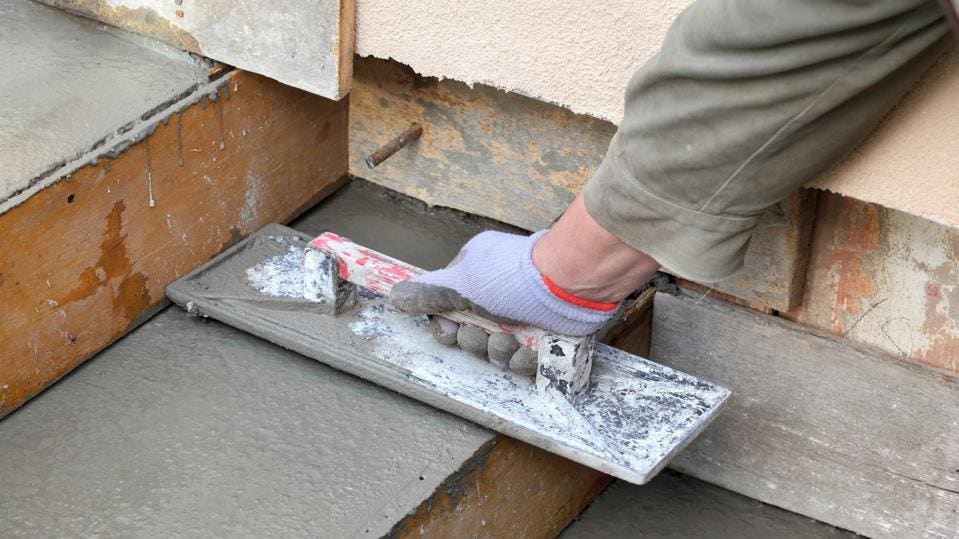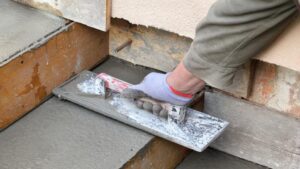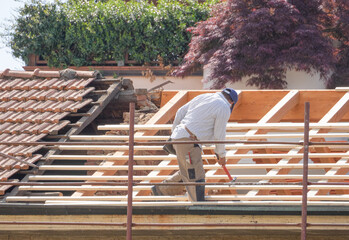A residential mortgage is a loan used to buy a dwelling. Borrowers repay the loan over time, and the interest is tax-deductible under most circumstances.
Obtaining a residential mortgage is a complex process that involves providing accurate and up-to-date documentation, such as proof of income (pay stubs, bank statements) and asset verification. Click https://www.stevewilcoxteam.com/ to learn more.

Residential mortgages allow a broader group of people to own homes by lending them money to buy a house or condo and then paying the lender back, with interest added, over time. These mortgages are secured by the home purchased, which gives the lender the right to seize and sell it if payments aren’t made.
Typically, home buyers will deposit about 20% on the purchase of their new homes and then take out a residential mortgage to cover the rest of the cost. The loan is then repaid for the mortgage term, which can be up to 25 years. However, lenders increasingly offer longer mortgage terms as the demand for residential property increases.
Before your mortgage application can be approved, the lender will order an appraisal of your prospective new home to confirm that its fair market value equals or exceeds the amount you are borrowing. The lender will also perform a title search to ensure the property is free from liens or other issues.
Your mortgage will be processed once the appraisal and title search are completed. The underwriter will review your application and credit history, the home’s value, and your employment and income verification to make sure you can afford to repay the mortgage.
Suppose you’re buying a home to rent out. In that case, the mortgage lender will want to ensure your expected rental income is sufficient to cover the mortgage repayments or may even require a remortgage to a dedicated buy-to-let residential mortgage product. You should avoid taking on any other debt or making any major financial changes while your mortgage is being processed, as these can impact your eligibility for the loan.
Once your mortgage is finalized, you’ll receive a Loan Estimate from the lender within three days of submitting your loan application. The LE will include your lender’s estimated closing costs, such as mortgage and title insurance fees, recording, and a property survey. It’s important to understand these fees so that you can budget accordingly.
Refinancing a residential mortgage means replacing your existing mortgage loan with a new one with different terms, usually resulting in lower interest rates, reduced monthly payments, or access to home equity. However, refinances come with costs and can result in a higher loan balance, so it is important to weigh the pros and cons carefully before making this decision.
If you decide to refinance, you must go through the pre-approval process with various mortgage lenders to compare interest rates and terms. This will help you find the best deal possible. You should also check your credit scores regularly, as you may need to clear up any issues that could cause problems during the refinance process.
The most common reason people refinance is to take advantage of lower mortgage rates, which can significantly reduce the monthly pay. Changing from an adjustable-rate mortgage (ARM) to a fixed-rate mortgage is another popular reason for refinancing.
There is no set time frame for when it is a good idea to refinance, but it is typically best to do so before mortgage rates rise. Having a clear goal in mind for your refinance, such as lowering your monthly payments or gaining access to the equity you have built up, can help ensure that you can save money and reap the benefits of your decision.
A residential mortgage is a loan taken out by someone who wishes to buy a property and live in it as their primary residence. It is secured against the property, meaning that if you cannot keep up with your mortgage repayments, the lender can legally repossess your home and sell it.
It is also possible to change a residential mortgage into a buy-to-let mortgage, which allows you to rent the property out. In this case, the mortgage lender must carry out affordability checks to ensure that your rental income is sufficient to cover the repayments. If you still need to, you must have a plan for how you will repay the debt from the rental income.
A reverse mortgage is a loan based on the equity you’ve built up in your home. It eliminates your monthly mortgage payment, allowing you to use it for other purposes. You can receive a lump sum at closing, regular monthly payments, or a line of credit. You can also switch from one option to another as your needs change. But beware that these loans are not free and come with fees like the mortgage insurance premium, origination fee, and closing costs. These charges add up, making a reverse mortgage much more expensive than a forward mortgage.
Reverse mortgages can be a good financial tool for older homeowners but are only right for some. It’s important to weigh the pros and cons carefully before proceeding.
The federal government backs HECM reverse mortgages and offers borrowers great flexibility. However, borrowers must meet certain age and income requirements, own their home outright, or have a small amount of outstanding mortgage debt to qualify.
In addition, the homeowner must maintain the home by their loan terms and pay yearly property taxes and homeowners insurance. If the property is sold or the borrower moves out, the lender must repay what’s owed using proceeds from the home sale. Any remaining proceeds are the heirs’ to keep.
You should be aware that a reverse mortgage can affect any younger family members who may live in the house and any non-borrowing spouses. This is because the reverse mortgage becomes due when the borrower dies or moves out. Discussing this with your family before taking out a reverse mortgage is important.
A private mortgage or HELOC is a better alternative to a reverse mortgage. It doesn’t require mandatory counseling or have the same upfront costs as a HECM. Moreover, you can pay it off or refinance it at any time. But consider the long-term effects of additional debt in your retirement years. It could impact your ability to qualify for a conventional mortgage later on.
A home equity line of credit, or HELOC, is a second mortgage that leverages the equity you’ve built in your house. It works like a credit card, where you can borrow up to an established limit and repay what you take out plus interest. A HELOC may be used for home improvements or debt consolidation.
Homeowners gain home equity by paying down their mortgages, renovating, and changing their properties’ market value. The amount of home equity you have is calculated as your property’s market value minus any liens on the property, such as a first or second mortgage. Some homeowners use their home equity to finance major expenses, such as a home remodel, a child’s college tuition, or debt consolidation.
To determine whether you have sufficient equity to qualify for a home equity line of credit, the lender will perform an appraisal or research your property’s value electronically to see its worth. They’ll also look at your income, outstanding debts, and credit score to vet you as a borrowing risk and understand your financial situation.
Whether you opt for a HELOC or a home equity loan, shopping around is a good idea to ensure you get the best financing terms and rates. You can compare financing offered by banks, savings and loans, credit unions, and mortgage companies. And be wary of any lender that tells you to skip the loan disclosures — under the Truth in Lending Act, lenders must provide you with a copy of all fees and costs associated with your financing.
When shopping for a home equity line of credit, it’s important to avoid lenders who try to lure you in with favorable initial terms and then snag you with high charges. Some common tactics include insurance packing, which is the lender including insurance packages you don’t want or need; bait and switch, where the lender greets you with a set of favorable terms but later pressures you to sign a different agreement with higher charges; and equity stripping, where the lender takes out more of your home’s equity than you’re borrowing.


